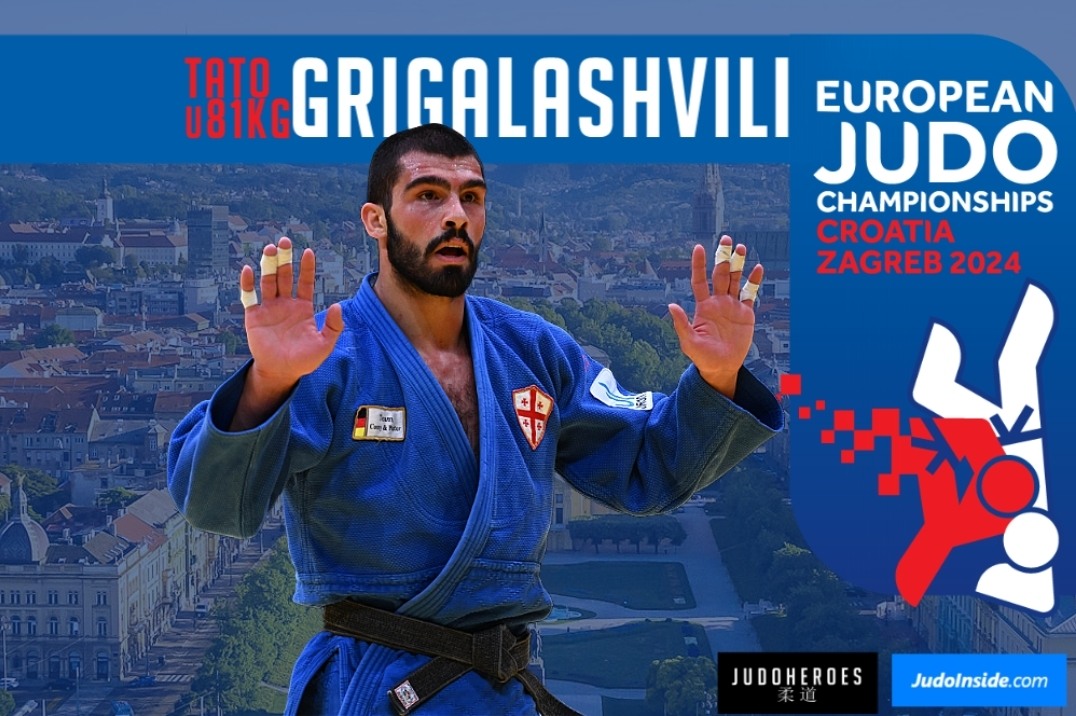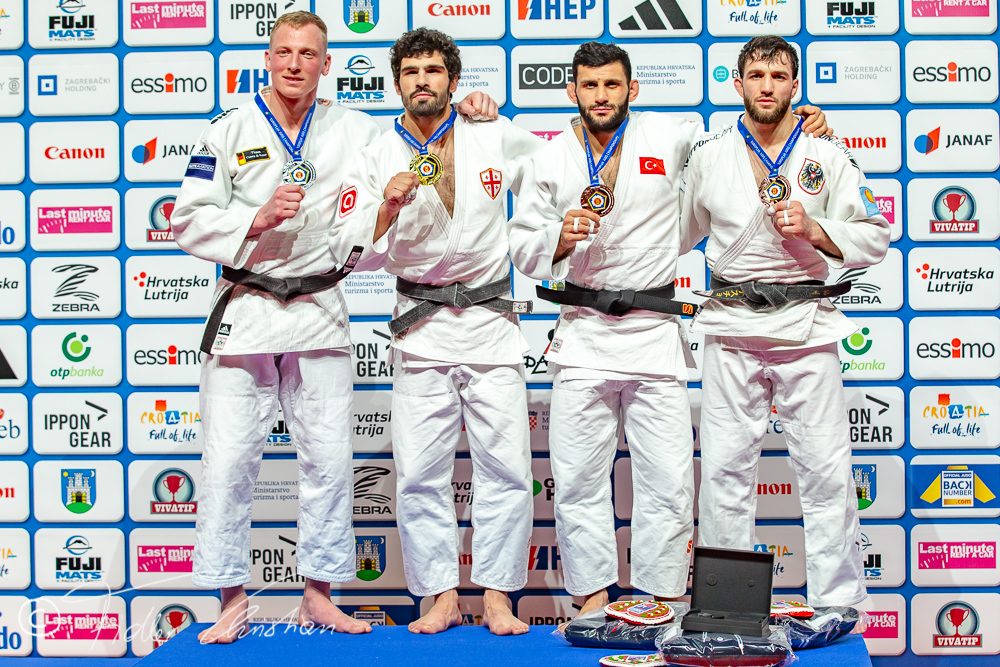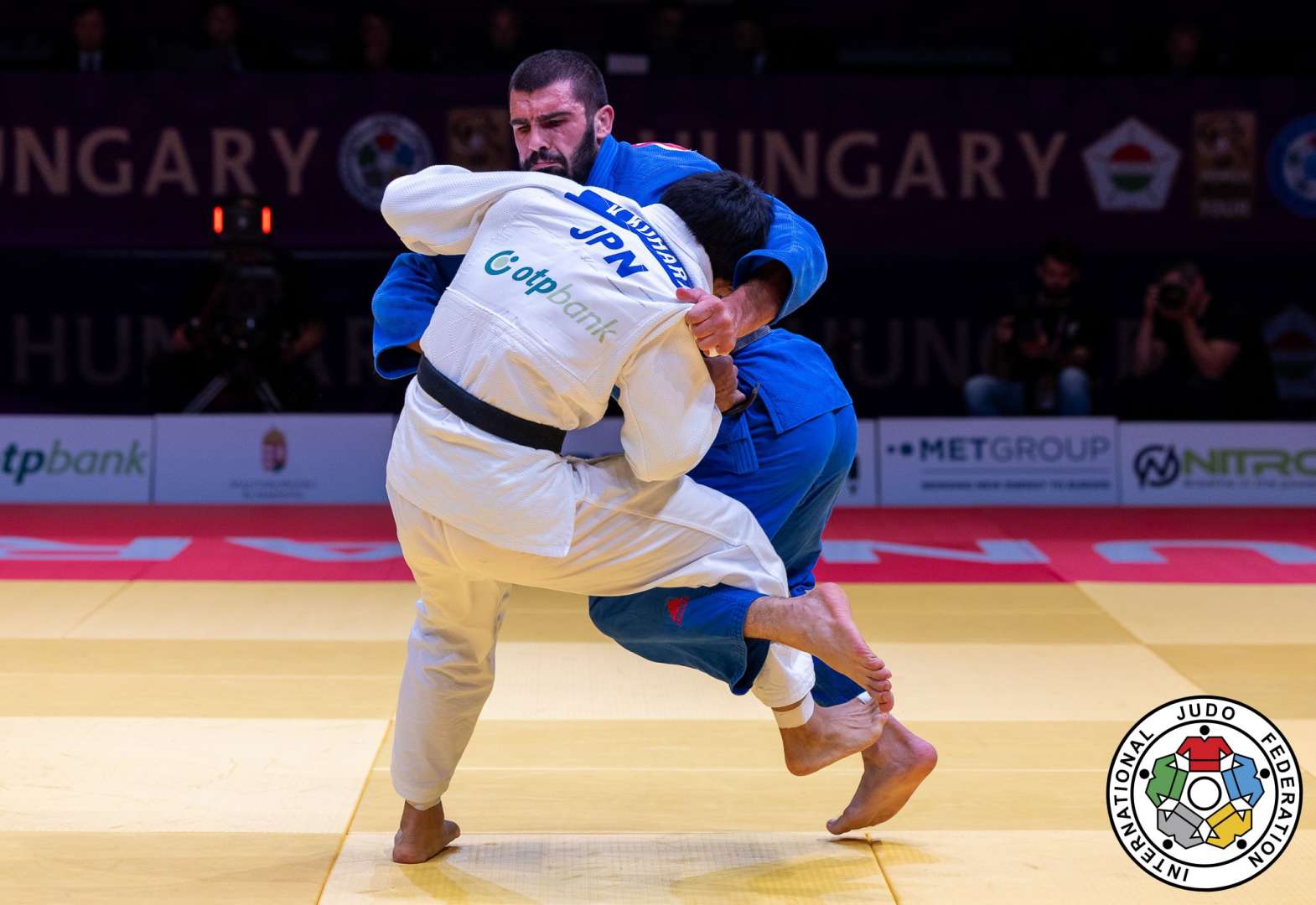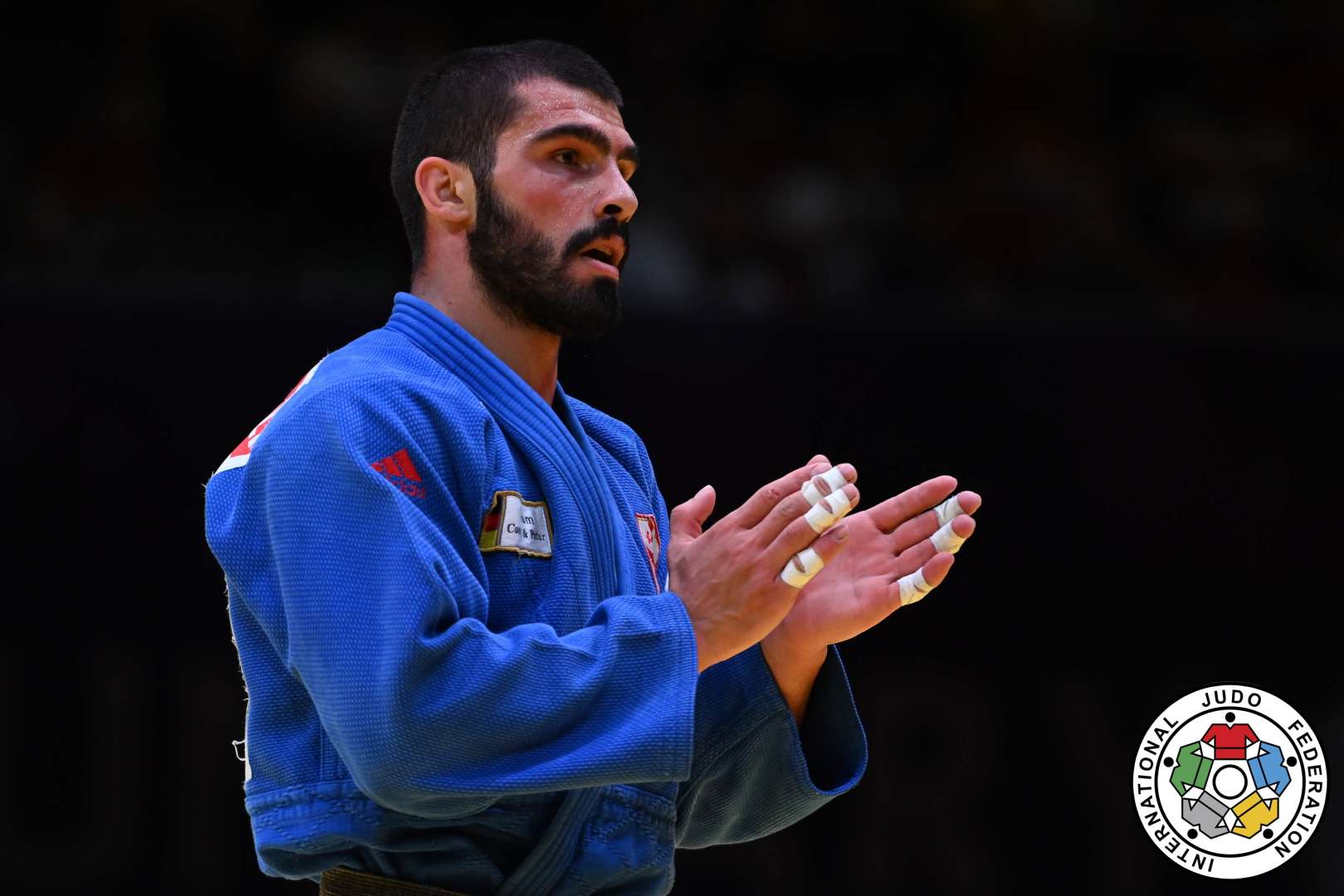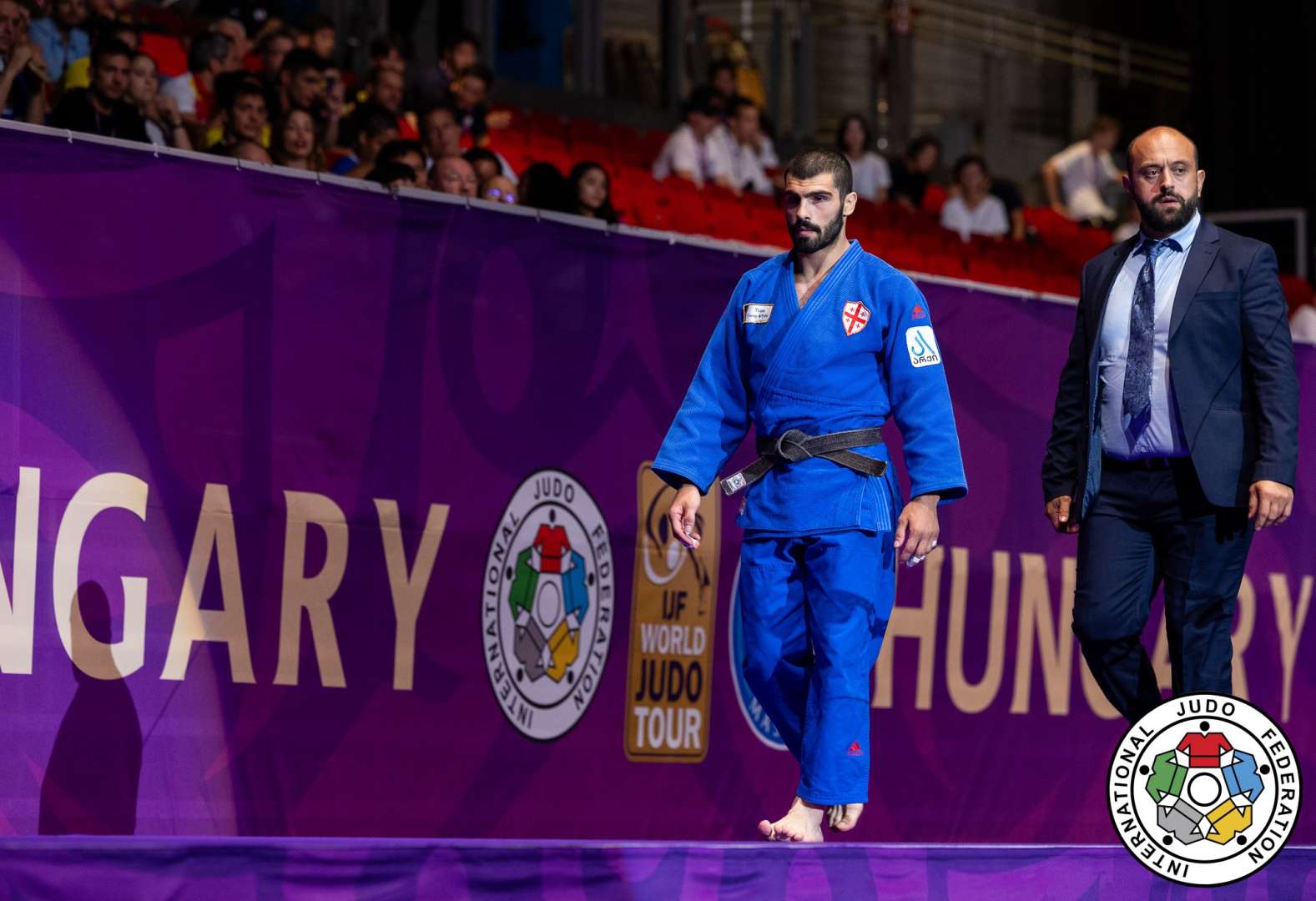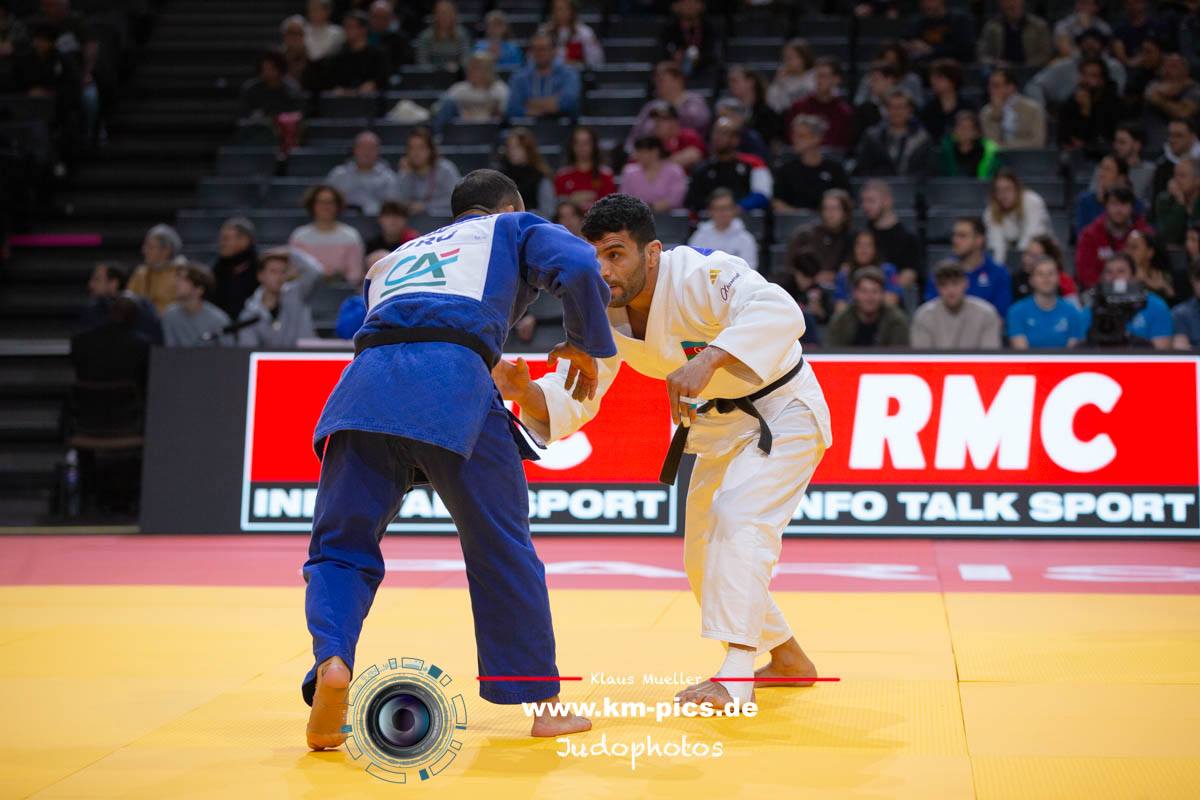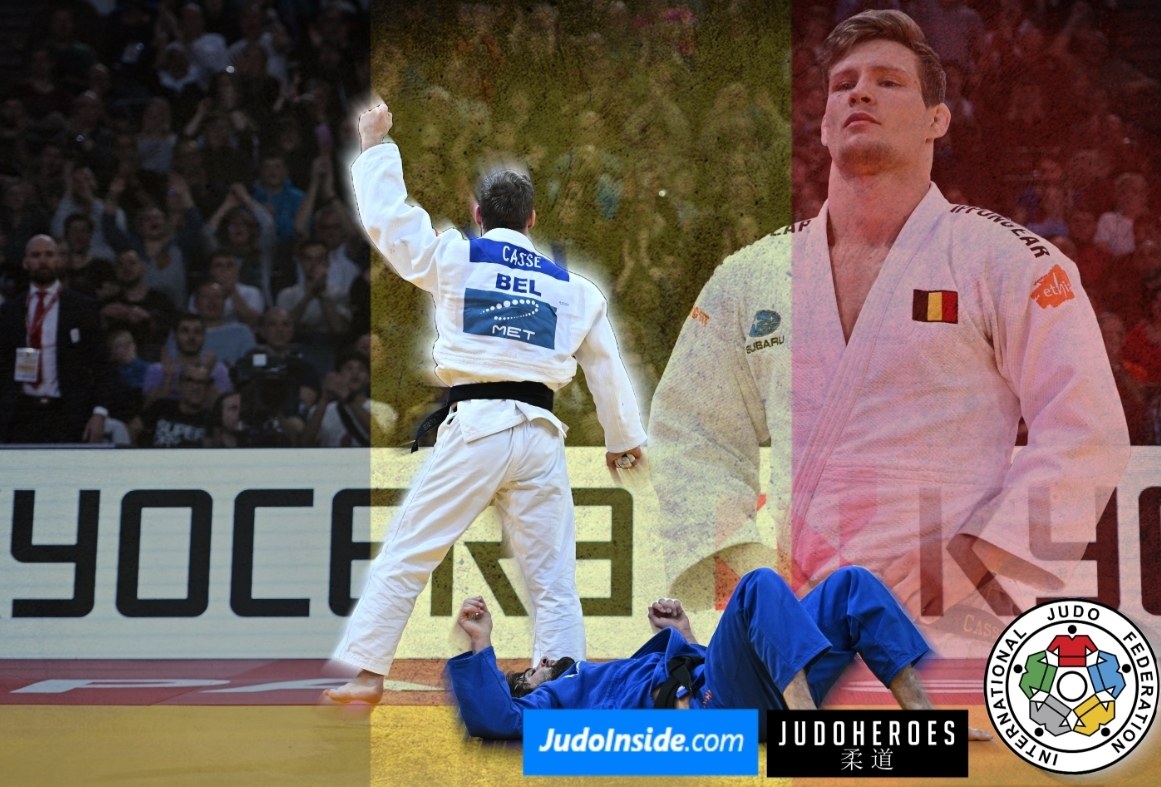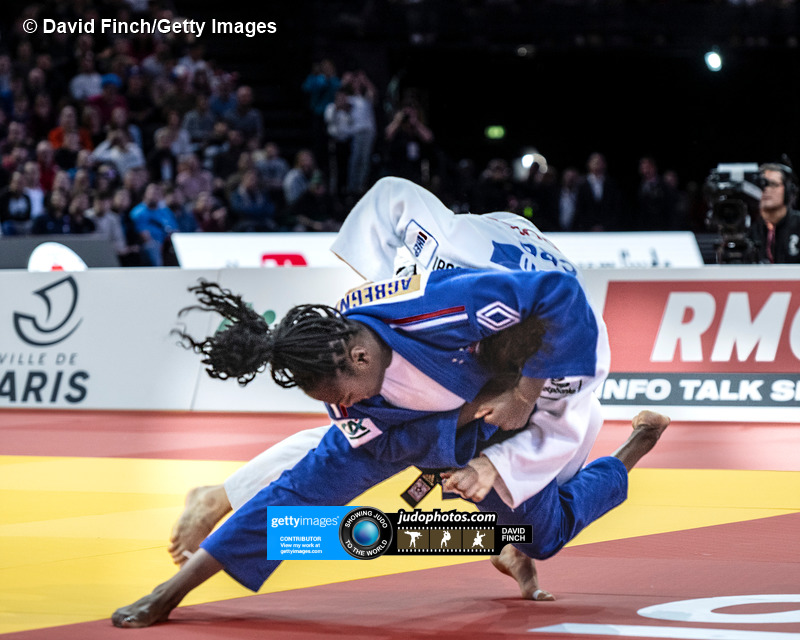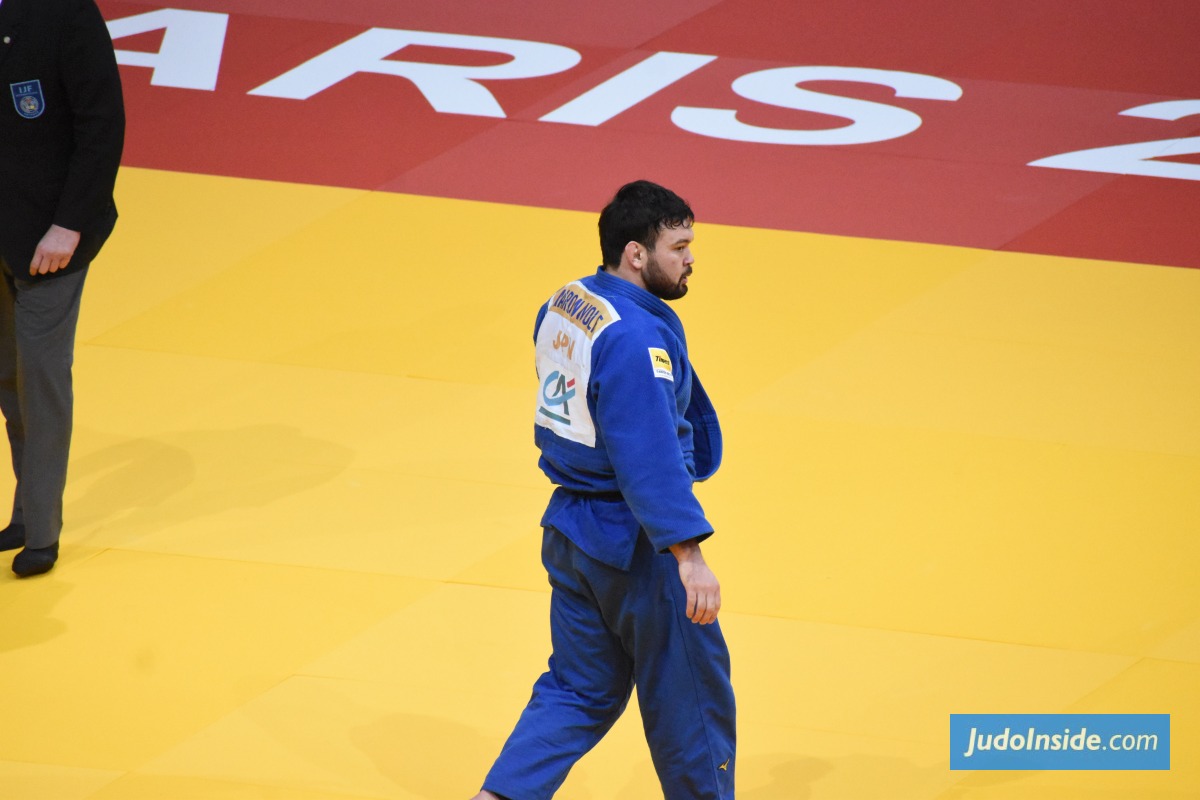Ronda Rousey recalls judo world championships in Brazil: 'I woke up ready to kill somebody'
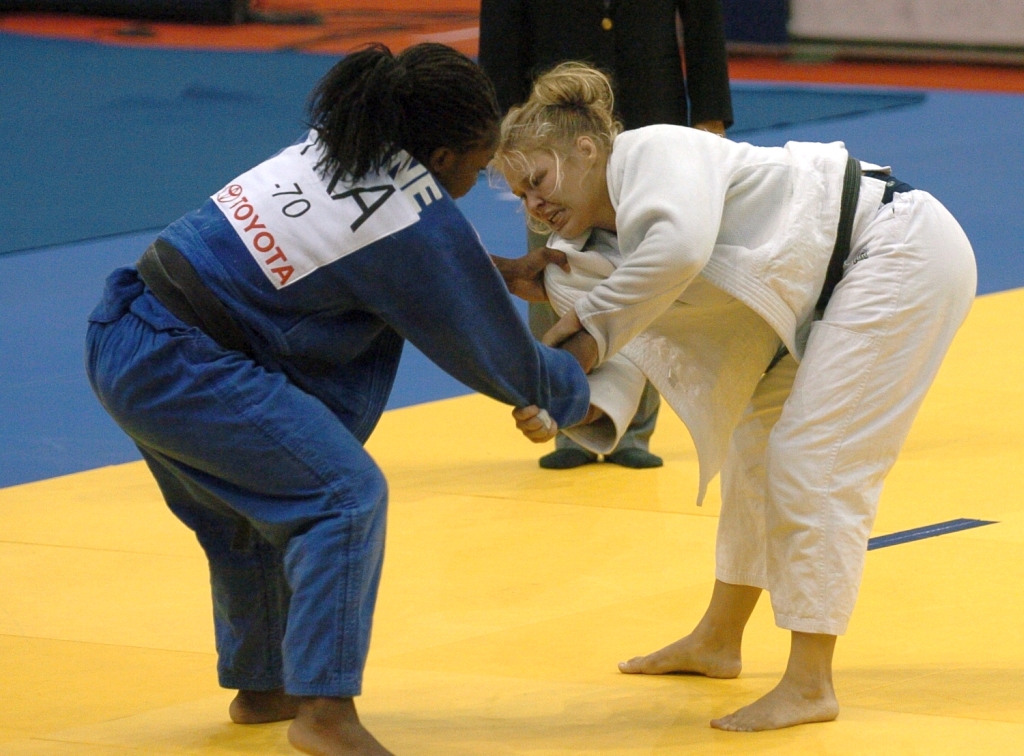
 12 May 2015 13:00
12 May 2015 13:00
 MY FIGHT/YOUR FIGHT by Ronda Rousey
MY FIGHT/YOUR FIGHT by Ronda Rousey
 Robert Danis
Robert Danis
Before Ronda Rousey took UFC by storm, she was a world-class judoka, winning a bronze medal at the 2008 Olympics in Beijing. In an excerpt from her new book My Fight/Your Fight, Rousey detailed the whirlwind final day of the 2007 Judo World Championships in Brazil, where she took silver.
I have been booed in thirty countries. I have been booed following UFC victories. I’m more used to being booed by a crowd than I am being cheered. I have never been a fan favorite. Pretty much my entire competitive career has been defined by people hoping to see me lose.
In the UFC, I’ve embraced the role of the villain. I don’t shy away from controversy. I don’t hold back when it comes to speaking my mind. That doesn’t always endear me to the masses. In a world that loves to root for the underdog, I’m always the favorite—and I always win.
But there are moments where no matter who you are or what you represent, people will be so impressed by what they see that they will forget everything else. If the performance is great enough, nothing else matters.
My mom says that to be the best in the world, you need to be able to beat anyone twice on your worst day. She’s right, of course. But some days you wake up and you just know no one is going to fuck with you. That’s how I woke up in Rio de Janeiro the morning of the 2007 World Championships. I woke up ready to kill somebody.
We had arrived in Rio a few days before, checking into El Motel—the Brazilian equivalent of Super 8. Some of my teammates were complaining about the rooms, but I didn’t need anything too fancy and, unlike at most tournaments, USA Judo was at least paying for my room.
The day of competition I got up early so I could take the first shuttle to the weigh-in. I checked myself on my scale: seventy kilos on the dot. I was close, but was going to make weight without issue. On my way down to the lobby, I ran into Valerie Gotay. Valerie was lighter than me and had already fought.
“Did you hear what happened?” she asked.
I had no idea what she was talking about.
“Some guy at sixty-six kilos was running last night to make weight and he got stabbed,” she said.
“Oh shit,” I replied.
“Speaking of which, I’m heading out,” I said.
“You know about the scale, right?” she asked.
My eyes narrowed.
“No, what?” These words right before a weigh-in are never followed by good news.
“The ones we have are light,” she said, meaning the US teams’ scales were giving a reading that was less than one’s actual weight. The official scale was .4 kilos heavier, meaning I was nearly a pound overweight. If you step on the scale at the weigh-ins and miss weight, you can’t compete. You don’t get a second chance.
“You have got to be fucking kidding me!” I shouted, throwing my bag on the hallway floor. Several heads in the lobby turned.
I started to head back to my room.
“Where are you going?” Valerie asked.
“To my room!” I shouted over my shoulder. “It looks like I’m running to the weigh-ins, incompetent USA Judo motherfuckers.”
I stormed into my room and pulled on my plastics, a pair of sweats made out of thin plastic. The suit prevents sweat from evaporating, keeping your body warm and making you sweat more. Then I layered my regular sweats over and pulled up my hood and headed back through the lobby, past the shuttle bus waiting to take the athletes to the weigh-in, and started running the mile to the tournament host hotel for the weigh-in.
It was September in Rio, and the sun was already beating down. Sweat dripped down my face. I could feel the hot condensation building up on my skin inside my plastics. I was running fast, when it dawned on me this was the exact stretch of road where the sixty-six kilo guy had been stabbed the night before.
If anyone tries to stab me today, they are gonna die, I thought. I was not in the mood to take shit from anyone.
I had turned a corner when I saw a sign for the host hotel and a sprawling nine-star resort spread out behind it.
“No fucking way,” I said out loud.
This was the hotel where the USA Judo executives had booked themselves. I ran up the long manicured drive to the lobby doors. A burst of cool air hit me in the face as the bellman pulled the door open. The weigh-in room was not yet open, but there was a scale in a room across the lobby where athletes could check their weight. I walked in and pulled off my sweats and wet plastics. I stepped on the scale. 70.2.
I growled. There is no worse physical sensation than putting on plastics again after you have already sweated in them. It is like pulling on a wet garbage bag, only it’s not dripping with water, it’s dripping with sweat and it sticks to your skin. I pulled my sweats over my plastics, headed back outside into the beating hot tropical sun and ran down Shank Road again, then I stormed back inside.
As I walked back through the lobby, I saw the Japanese girl in my division coming out of the elevator. The Japanese team was staying here at the Hotel Deluxe Riviera Ritz. She was walking with two coaches, who had undoubtedly watched hours of her opponents’ footage, which they were likely discussing with her at that exact moment. She was wearing her sponsored designer sweats with her matching sponsored designer bag. But what pushed me over the fucking edge was that she was carrying a little tea kettle with a matching sponsored designer tea kettle warmer slipped over it.
I about lost my mind.
USA Judo had barely provided us matching sweats, so I sure as shit didn’t have a matching tea kettle warmer, and even if I had, I wouldn’t have it with me because it would have been back at El Motel and I would have to run back along Shank Road to go get the goddamn thing. The hairs on the back of my neck were standing up as every muscle in my body tensed. I caught myself grinding my teeth. My fists were balled up so tightly that my nails were digging into my palms.
You’re my first match, I said to her in my head. I’ll deal with you then.
At the unofficial scale, I peeled off my plastics for a second time: seventy kilos. Now I had to go weigh in across the lobby. I looked at my pile of sweats on the floor. There was no way I was putting them back on. I wrapped myself in a towel and marched into the lobby. It was filled with athletes, tournament officials, coaches, referees, a few tourists. All heads turned as I passed by. I held my towel with one hand and looked straight ahead. If I could have walked through there with my middle finger up in the air and not have risked getting in trouble for violating some tournament rules of conduct, I would have.
I walked into the room where the official weigh-ins were underway. Because it was the world championships, the organizers had everyone lined up. I was near the end of the line. I stared down each girl who walked by on her way out the door after making weight, making a mental note to destroy her when the tournament began. Finally, it was my turn. I weighed in, got some water, took the shuttle back to the hotel to get my things for the tournament and got ready to make these bitches pay.
A favorite joke in judo circles is the Americans always have the worst draw, because it’s better to have an easy fight first and get warmed up. People always laugh when an American draws a Japanese in the first round. Judo started in Japan, and the Japanese take judo very seriously. It is not that hard to be the best in the United States in judo. To be the best in Japan, you have to be solid. Japan almost always dominates. The draw is posted at the coaches’ meeting the night before the tournament starts. Some people will map out their entire potential pool. I just took it one match at a time, never looking ahead to see who I might face.
“Gonna have to beat ’em all anyway,” I figured.
My match against the Japanese girl was early, so the stadium was only about a quarter filled. Still, I could hear the Japanese cheering section in full effect. Their cheer coordinator shouted something out, and as always, the Japanese fans returned the cheer. I never let the crowd impact me, but the crowd often influences the referees. I always made a point to gauge the atmosphere in order to know what the referees might be thinking, then I tuned the noise out.
I stared across the mat at her.
Fuck your tea kettle warmer, I thought.
I made the match a brawl, which is the worst possible matchup for a Japanese fighter. They’re very traditional and focused on proper technique. I was hustling on the ground, spinning her off balance, throwing her all over the place.
I wiped the mat with her, throwing her twice and winning by a waza-ari (half-point) and ayuko (roughly a quarter-point). She was scoreless.
Next, I had Ylenia Scapin, a two-time Olympic medalist from Italy. We had never met before, so I didn’t know what to expect. The second you grab someone you feel the strength on them; it was immediately apparent that she was the strongest chick I had ever faced. Strong fighters present a different set of challenges. It’s much harder to break grips against them. Their defense is a lot better.
Offensively, I wasn’t really scared of Scapin, but she was harder to grip with and harder to throw. Being strong doesn’t necessarily make an opponent more threatening, but it makes them more difficult to control.
I threw her for a waza-ari in the first minute of the match. She couldn’t score on me either.
Then, I had Mayra Aguiar from Brazil, the hometown favorite in the quarterfinal. The arena had been steadily filling up and was now closing in on three-quarters full. In contrast to the Japanese fans with their cheer coordinator, the Brazilian fans were the complete opposite. Unadulterated pandemonium. The Brazilians were the craziest, most passionate crowd I had ever experienced. They were blaring blow horns and flying flags. One section was covered by a massive Brazilian flag the fans were holding up.
They booed me as I walked onto the mat, chanting “You’re gonna die” in Portuguese. I noted the noise, assessing the impact it might have on the referees. I was going to have to win more definitively. Up against the roar of the crowd, I took her to the mat and pinned her for ippon with thirty seconds left on the clock. The Brazilian fans booed me viciously as I walked off the mat.
I had made it to the semifinal. It would be a matchup between me and Edith Bosch, the reigning world champion. She was a six-foot Dutch chick with an eight-pack. I looked like a hobbit next to her.
Bosch and I had fought for the first time at the German Open a month earlier. I was declared the winner of the match when she was disqualified for doing an illegal armbar on me. She had dislocated my elbow in the process.
If I had a nemesis during my time competing at seventy kilos, it was Edith Bosch. You know how in movies where the hero fights off like five guys and is taunting “Is that all you got?” then turns around to find himself eyeball to belly button with a giant? Edith Bosch is that giant.
I knew Bosch would be happy with the matchup. She thought she got an easy draw. I wanted to make sure this would be the last time she was ever glad about having to face me.
The referee said, “Hajime” (begin). And what does Bosch do? The exact same move that got her disqualified in Germany again. And again, she dislocated my elbow. Only this time, the referee didn’t see it.
I glanced at my limp elbow, then back at Bosch with a look that said, “Are you fucking kidding me?” I could not believe she had pulled this shit again. I could not believe she was going to get away with it. I looked back to the referee. Nothing.
I wanted to scream. But arguing was pointless. A shooting pain quickly brought me back into the moment. I had never forfeited a match in my life, and I sure as hell wasn’t going to quit in the semifinal of the world championship.
I braced myself. I tensed my left arm and took a deep breath. With my right hand, I grabbed my forearm just below the dislocated elbow and pushed as hard as I could. Pop. The joint snapped back into place. The manipulation hurt like a bitch, but as soon as my elbow was back where it belonged, the sharp pain dulled to a barely tolerable ache.
I glared across the mat at Bosch. She showed absolutely no remorse, which only made me angrier. Looking straight at her, I shook out my arm, and thought, Fuck you, bitch, I’m going to keep going.
Bosch scored on me about halfway through a five-minute match, putting me behind. She tried to avoid any contact with me over the next two minutes, hoping to stall long enough to run out the clock. Her plan was working.
There were thirty seconds left. I said like nineteen million prayers. I looked up toward the rafters and had what felt like an incredibly long conversation with God.
“Please, God, help me,” I pleaded. “Please help me figure this out, this one match.”
The clock was ticking down.
29 seconds. Please God. I went in for a grip.
28. Please God. Bosch pushed me off.
27. Please God. I went in to grab her again.
26. Please God. Bosch moved like she was going to attempt to throw me. 25. Please God. She did not have a chance in hell of throwing me.
24. Please God. I made my move. I timed it perfectly.
23. Please God. I grabbed Bosch, one-handed with the arm of the elbow she had dislocated.
22. Please God. I turned, the leverage pulling Bosch off the ground and over my head. She went sailing through the air, in front of God and everyone.
21. Please God. Bam! She landed on the ground on her back for ippon. I had won instantly.
20. Thank you, God!
Bosch lay facedown on the mat for a moment, as if she could not believe she had lost.
The place exploded. The entire arena had been watching our fight, and everyone in the building lost their minds after seeing my David-and-Goliath moment. The whole crowd erupted, cheering for me.
The applause had nothing to do with who I was or where I was from. In that moment, they didn’t care—they had seen something amazing happen.
My match against Bosch was the only time I got cheered for in judo. It was the most exciting moment of my judo career, but the elation was short- lived as I tried to block out my throbbing elbow and my focus immediately shifted to the final.
I faced Gevrise Emane of France in the championship and got called for a bullshit penalty in the first minute, which put me immediately behind. She scored on me a few seconds later with a throw that was questionable at best as far as whether it was a legitimate scoring takedown. I scored on a throw halfway through the match, bringing me within a minor score of tying the match—that is until the referees conferred and reversed the decision giving the score to my opponent. Firmly ahead on points, she spent the rest of the match running from me. She got a stalling penalty with less than a minute to go, then sprinted away from me in the final seconds of the match.
The world championship had slipped through my fingers. Every time I closed my eyes, even to blink, I saw Emane throwing her arms in the air in jubilation. I had no one to blame but myself. I had let it come down to points. I had failed. It hurt to breathe.
After the competition had ended for the day, I walked up into the stands where the crowd had been cheering for me so loudly hours before. I had to call my mom back home, but I couldn’t do it yet. Making that call would require finding the strength to say: I lost. My gut twisted. I climbed to the very top of the seats. The arena was nearly empty. I settled myself at the end of a row of seats, up against a corner, pulled my knees up to my chest, and cried harder than I ever had since Dad died.
All Rights Reserved. ‘People Appreciate Excellence No Matter Who You Are’ is excerpted from MY FIGHT/YOUR FIGHT by Ronda Rousey to be published by Regan Arts tomorrow, May 12.
 like
like
 share
share

| Result | City | Date |
|---|---|---|
| 1 | Zagreb | 26 Apr |
| 3 | Belgrade | 2023 |
| 2 | Montpellier | 2023 |
| 3 | Budapest | 2023 |
| 1 | Doha | 2023 |
| Result | City | Date |
|---|---|---|
| 1 | Tashkent | 2 Mar |
| 1 | Paris | 3 Feb |
| 1 | Budapest | 2023 |
| 2 | Tokyo | 2023 |
| 5 | Montpellier | 2023 |

.jpg)
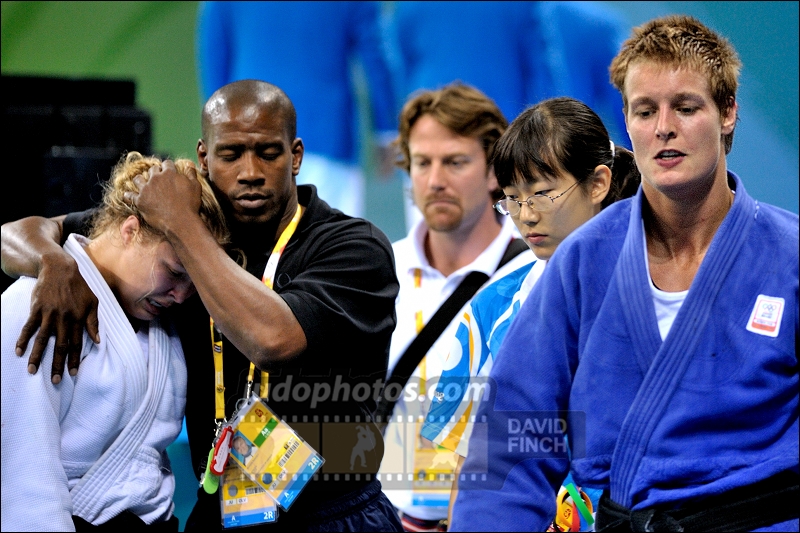
_01.jpg)




